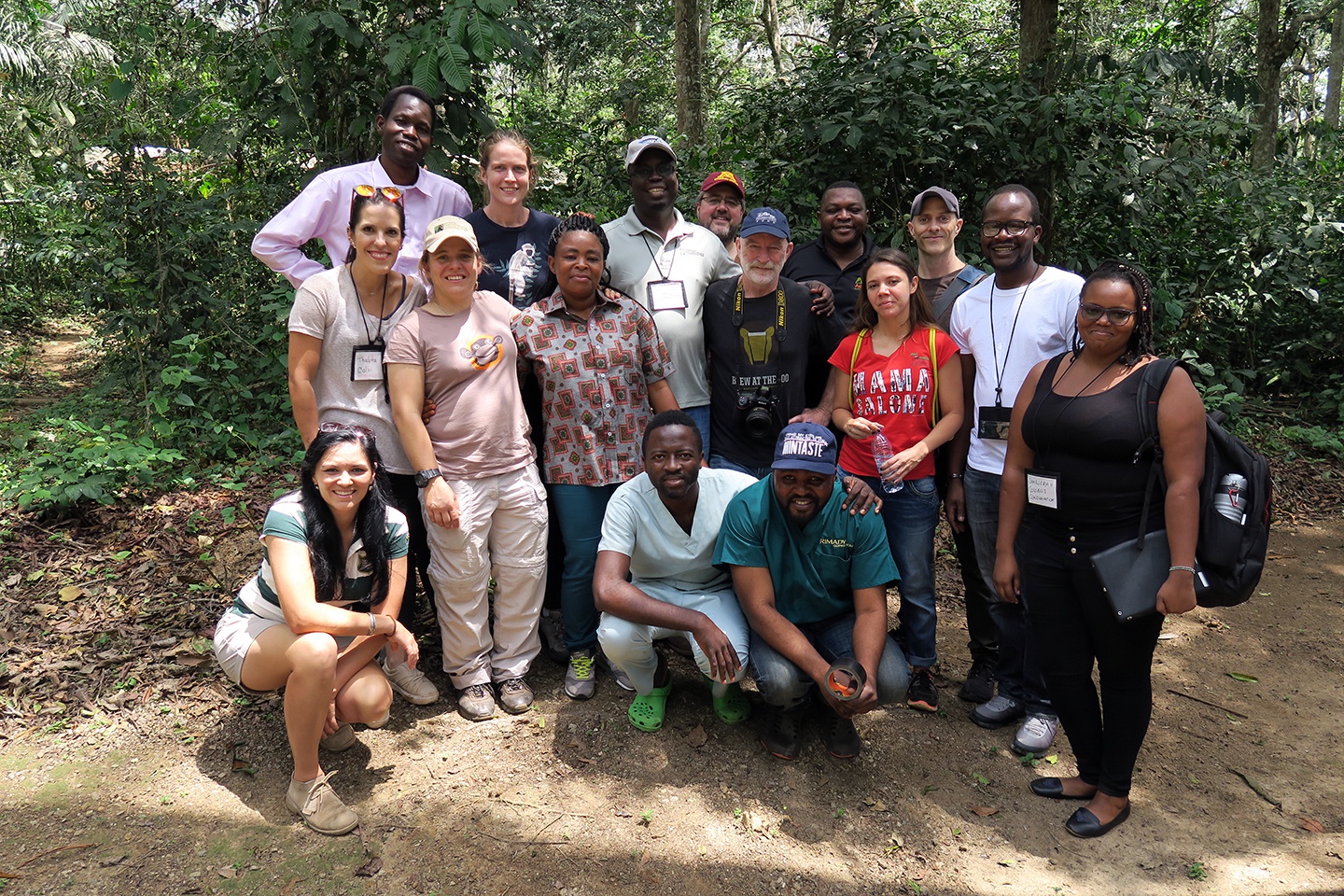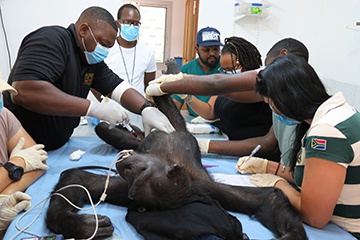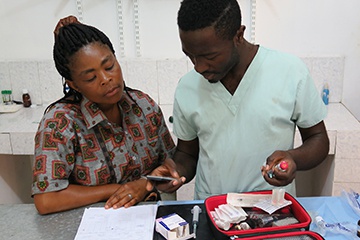On the Frontlines to Save Primates:
PASA’s 2019 Veterinary Workshop
PASA veterinarians convene in Cameroon to discuss conservation, disease, and saving humanity’s closest relatives.
As the bushmeat crisis, the illegal wildlife trade, and habitat degradation increase rapidly, humanity’s closest relatives near closer to extinction. Since PASA members are on the frontlines of the movement to protect African primates, there is an urgent need to build their capacity. Last month, PASA partnered with the leaders in primate veterinary education to conduct a workshop to build the veterinary capacity of sanctuaries and wildlife rescue and rehabilitation centers across Africa.
The veterinary workshop was hosted by Ape Action Africa in Yaoundé, Cameroon from Monday, March 25th through Friday, March 29th 2019. Veterinary professionals from 17 African wildlife centers attended the workshop to share ideas, troubleshoot problems, and set a foundation for future veterinary capacity building for PASA members.
Some of the objectives of the workshop were to increase wildlife centers’ collaboration with veterinarians and researchers worldwide, empower wildlife center veterinarians to work to international standards, and build the capacity of primate centers by professionalizing their veterinary treatment and management of animal health.
Furthermore, the workshop established a foundation for the PASA One Health Initiative, a multifaceted veterinary education program which will build the capacity of primate centers across Africa. These centers stand at the interface between human and animal health and are uniquely positioned as hubs of research on areas including zoonoses and other infectious diseases.The program will include mentorships, on-site training, e-learning, and workshops about topics such as preventative healthcare, biosecurity, and diagnostics.
The workshop was highly interactive, with many enthusiastic discussions led by wildlife center vets and specialists from abroad. Workshop participants traveled to Ape Action Africa’s Mefou Sanctuary where they participated in health exams of the center’s chimpanzees. They discussed procedures for anesthesia and exams, minimum samples to collect, and procedures for collecting samples. More- and less-experienced participants worked collaboratively to ensure everyone had opportunities for learning.

The participants were very diverse: some had attended numerous PASA veterinary workshops but many were attending for the first time, and while most are veterinarians, some are vet techs or vet nurses, or wildlife center staff who function as vet assistants without formal veterinary training. The interactive nature of the workshop enabled everyone to find common ground for discussion and helped people of different backgrounds to complement each other.
“I think it has been the best veterinary workshop I have ever attended” – Ainare Idoiaga
The nature of PASA members’ work is unique. Therefore, it was critical that the outcomes of the workshop were driven by the wildlife center personnel, rather than specialists from abroad. Major outcomes of the workshop included the appointment of a new PASA Veterinary Coordinator as well as a committee consisting of wildlife center veterinary staff and other members of the PASA veterinary family; forming new, valuable relationships between wildlife centers and helping people know who to contact about specific questions; and collectively acknowledging that tuberculosis is an important threat to primates in wildlife centers, which can be addressed more effectively by sharing data and collaborating with key partners. Many participants also expressed interest in updating the PASA Primate Veterinary Healthcare Manual, including adding procedures to be standardized across wildlife centers.
The PASA family looks forward to the next PASA Veterinary Workshop at Sweetwaters Chimpanzee Sanctuary in Kenya in 2021.

PASA vet techs and veterinarians examine a chimpanzee at Ape Action Africa.

PASA’s vet workshop included hands-on training sessions.
